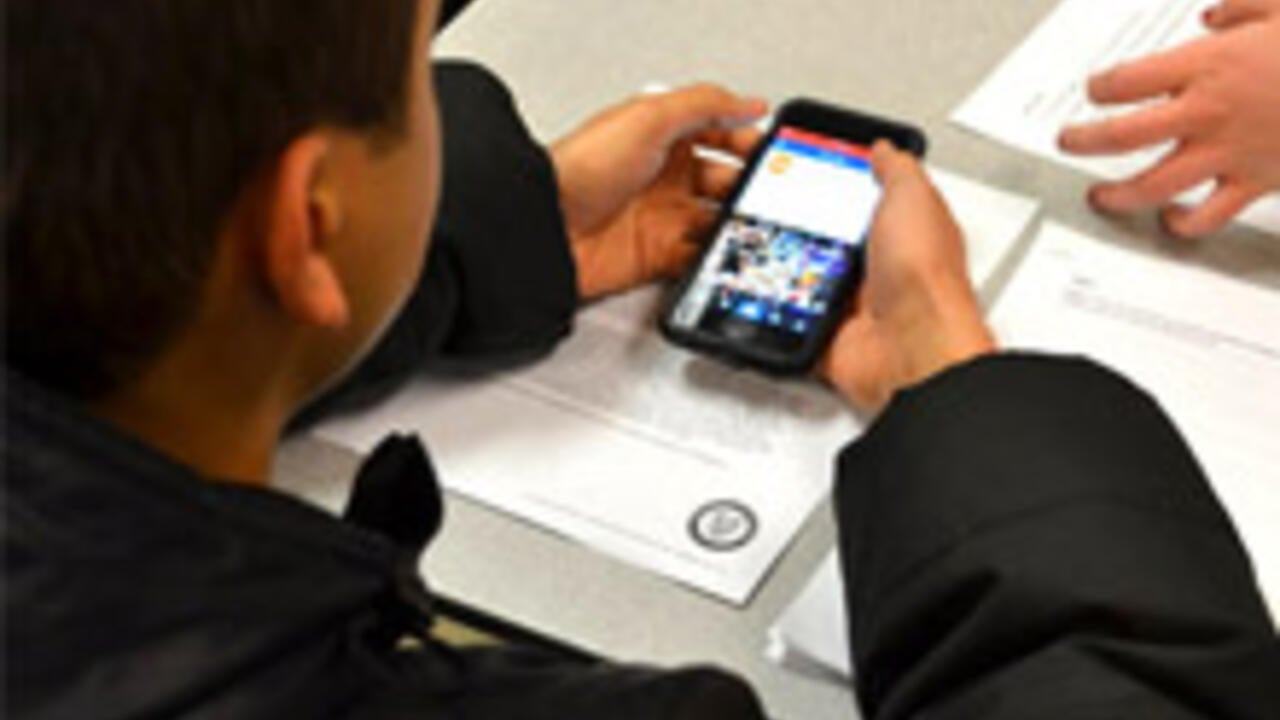
Students get user experience design skills in hands-on Waterloo course
Senior digital design students create innovative Instagram campaign to help recruit high school students to the University of Waterloo

Senior digital design students create innovative Instagram campaign to help recruit high school students to the University of Waterloo
By Megan Hood Faculty of ArtsSenior digital design students in the Faculty of Arts are developing an innovative social media campaign that will be used to recruit high school students to the University of Waterloo.
The students are working with the University’s Marketing and Undergraduate Recruitment department to create an Instagram campaign. The real-world project teaches digital arts students how to understand, design for, and then communicate with a real audience.
“This course, with its experiential focus, allows the research process to come alive. Students know that what they are working on, and presenting to the client is important and meaningful. They are making consequential decisions and solving a real world problem for someone other than themselves and the instructor,” says Jill Tomasson Goodwin, Associate Professor in the Department of Drama and Speech Communication.
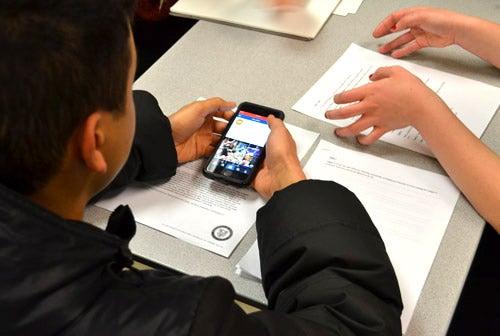
A high school student participates in user testing for the Instagram campaign
User Experience Design (UXD) is a relatively new and burgeoning field that focuses on the end-to-end user experience of technology products and services, and includes just about everything that we use in a day on our devices and in our lives.
The digital arts communication course has students learning core user experience design skills: gathering end-user insights, designing interactive communication, and then testing the communication. The third-year course offers students a chance to learn skills that will enhance their professional careers as designers while giving the Marketing and Undergraduate Recruitment department a chance to see user-informed prototypes of compelling visual experiences, designed to draw more prospective students to Waterloo.
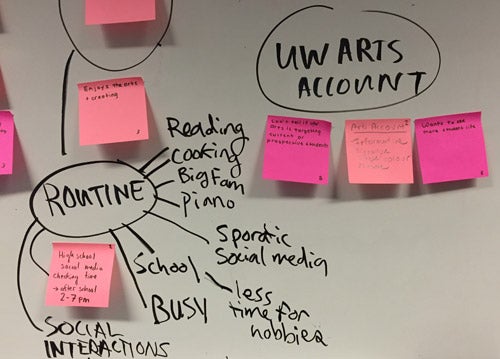
Students map out end-user insights using sticky notes and a white board. Photo credit: Danielle Bennett
Last year, students in the course (DAC 309) worked with Marketing and Undergraduate Recruitment (MUR) to create an enhanced and interactive experience with an augmented reality app. High school students and parents can now scan the pages of a Waterloo’s recruitment viewbook on their devices or from the web to unlock videos, photos, links to student stories and tips for applying.
“From day one, Professor Tomasson Goodwin put the onus on us, which was a very empowering way to experience a course,” says Rhiannon Ball, a former student and a recent Honours Arts and Business graduate. “The course helped to bridge the gap between my school and co-op terms. I completed a professional-level, workplace project within the context of an academic course. This lower-risk environment facilitated my learning, as I was encouraged to ask questions, revise my work, and become the expert,” says Ball.
Based on interviews with high school students, the team this year created, and then tested, two versions of a campaign - a static image version and a dynamic version with video and animation to help recruit students to Waterloo’s Anthropology and Theatre & Performance programs.
“MUR and the Faculty of Arts are very committed to enhancing the student experience, and are genuinely interested in the primary research that my students are doing with the high school students,” says Tomasson Goodwin. “Being closer in age to the user, they are able to provide a unique understanding and translation of what high school students are thinking about during the process of selecting a university.”
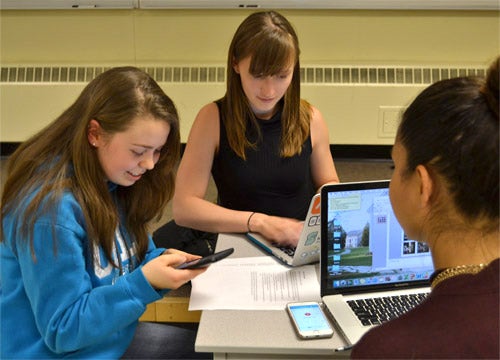
A high school student is interviewed by two students in professor Tomasson Goodwin's DAC 309 class
“We’ve positioned the DAC students as a creative agency and encouraged them to revaluate their perceptions around social media and how it’s used in a business setting,” says Amy Meredith, Specialist with Marketing and Undergraduate Recruitment. “This new way of thinking, combined with their creativity and emerging user experience design skills, is producing some really amazing social content and helping us, in undergraduate recruitment, to better understand our audience.”
Students not only experience a project with consequences, they see how they can transfer what many courses at university expect them to do: research, communicate findings, deal with others, listen to different opinions, appreciate and integrate them into their own perspectives.
All these skills and abilities are ones that they carry into the world after graduation. “The students become aware of what they are learning, how they are improving, and what they want to work on. In this process, the students claim ownership of their growth and development of transferable skills, across courses, across their university years, and into their work life.”
“What stood out the most for me was the emphasis placed on being able to articulate what you are capable of. It was striking to me that having experience may not be enough,” says psychology student Julia Meriel.

Read more
President of Waterloo EDC says the University of Waterloo plays a pivotal role in region’s economic development on the global stage

Read more
English professor reflects on the innovative field of children’s literature and the challenges of writing and publishing picture books
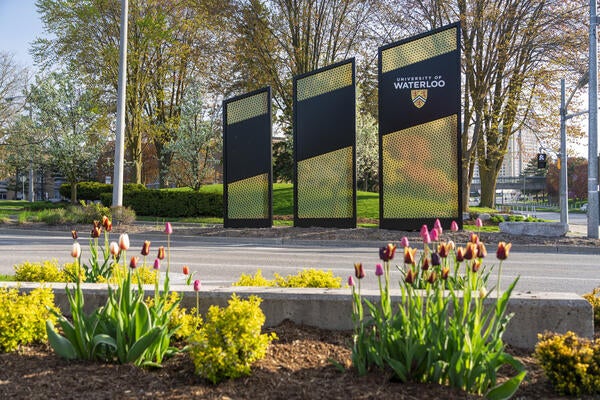
Read more
From developing artificial pancreatic devices to advancing research on the respiratory system and more, Waterloo researchers continue to lead breakthrough projects
The University of Waterloo acknowledges that much of our work takes place on the traditional territory of the Neutral, Anishinaabeg and Haudenosaunee peoples. Our main campus is situated on the Haldimand Tract, the land granted to the Six Nations that includes six miles on each side of the Grand River. Our active work toward reconciliation takes place across our campuses through research, learning, teaching, and community building, and is co-ordinated within the Office of Indigenous Relations.